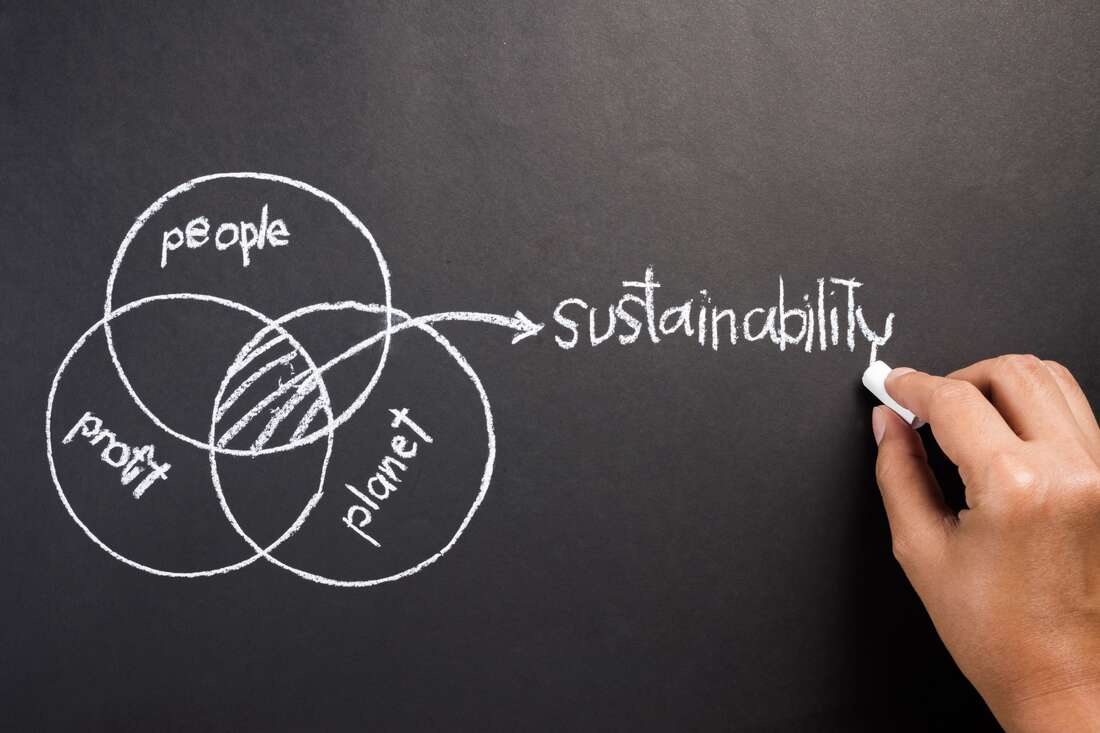SMEs account for the highest percentage of business worldwide, meaning they play a crucial role in the world’s efforts toward sustainability.
Therefore, it is paramount for SMEs to contribute both socially and environmentally and maintain financial profitability as this has slowly turned into a focal point for businesses.
A sustainable business is defined as having “active concern for the environment, human rights, work requirements, business ethics, gender equality, diversity and being environmentally sensitive. The customer is increasingly becoming sustainability aware and wanting to buy from sustainable companies.
This signals producers and service providers to transition to sustainable production and consumption models to attract more customers. Sustainability for SMEs means adopting sustainable, and socially conscious practices such as recycling, flexible working conditions and introducing more sustainably sourced materials in their supply chain.
Sustainability leads to a competitive advantage for SMEs as it assists them in achieving sustainable dividends in five key areas: revenue generation, cost reduction, risk management, reputation management, and acquiring the more deserved social license to operate.
On the other hand, sustainability drives business innovation, resulting in operational efficiencies, lower resource use, and less waste.
Every SME wants to be competitive socially through increase in revenues and costs reduction, which help improve cash flows of the business.
Embracing sustainable practices will enable a business to achieve that. The business will make significant savings by cutting down production costs on energy, water, and paper usage.
Sustainability helps SMEs gain efficiencies in the supply chain that can be both green and cost-effective. For example, local sourcing will mean raw materials are acquired locally, which reduces the distances, hence helping to cut emissions and save on transportation costs.
The use of fewer resources through recycling and more efficient materials such as packaging materials helps SMEs save cost.
The concept of sustainability enables SMEs to improve on employee well-being issues, which creates a more motivated workforce. Consequently, it enhances the productivity among the employees, significantly contributing to high financial and operational performance.
Unfortunately, very few business leaders from the SMEs segment understand the importance of sustainability. They see it as a big, rich and old companies’ affair, forgetting the benefits of embracing sustainability irrespective of the company’s size, age and cash level.
Business readers who understand the concept of sustainability are introducing effective environmental and social initiatives through the development of an organisational-specific sustainability strategy.
The SMEs that want to succeed and continually thrive must adapt to sustainability and develop a genuine, thoughtful and authentic business ethos.
Here sustainability and caring for the environment are central and core to everything they do. The concept of sustainability will enhance SMEs’ transformation in operating and ensuring their services or products minimise their impacts on the environment and social elements.
Technology will enable SMEs to develop innovative ways of producing various products and services while allowing their customers to become more environmentally and socially friendly in meeting their sustainability ambitions.
This, too, enables the SMEs to develop a sustainable competitive advantage while at the same time enabling the SMEs to sustainably reduce their carbon footprint in their operations.
SMEs cannot afford to pay lip service to sustainability; they need to do much more than cosmetic social responsibility (CSR).
This is where sustainability comes an anchor and it helps create value for stakeholders who do not just want strong financial performance. Still, they demand businesses to be socially responsible, ethical and environmentally sustainable.
The SMEs need to capitalize on sustainability to help introduce and enforce codes of conduct and policies on issues such as human rights and relationships with local communities and how to report on environmental, social and governance (ESG) performances.
Embracing sustainability is not a walk in the park, it is a major challenge for SMEs. But with success comes responsibility. The SMEs must approach sustainability head-on and help create tangible, positive changes that help in sustainability development and including combating of climate change.
SMEs need to take steps to help reduce their carbon footprint and this will enhance their commitments to a sustainable environment hence cultivating a culture of sustainable future among their peers and customers.
The prominence of climate action in the recent past presents SMEs with risks and opportunities that need to be deliberately managed.
Sustainability is what customers are demanding, and that is how businesses will find growth to compete in today’s economy.
The proactive SMEs are not only aware of sustainability as a potential game-changer for their business competitiveness. Still, they are already capitalizing on trends and taking action to unlock the value presented by sustainability.

